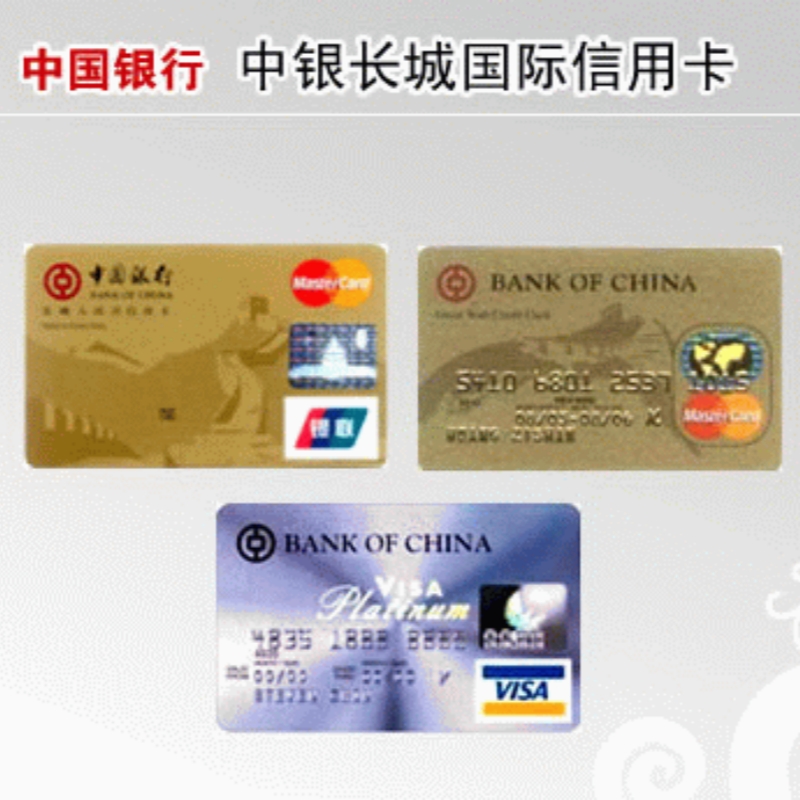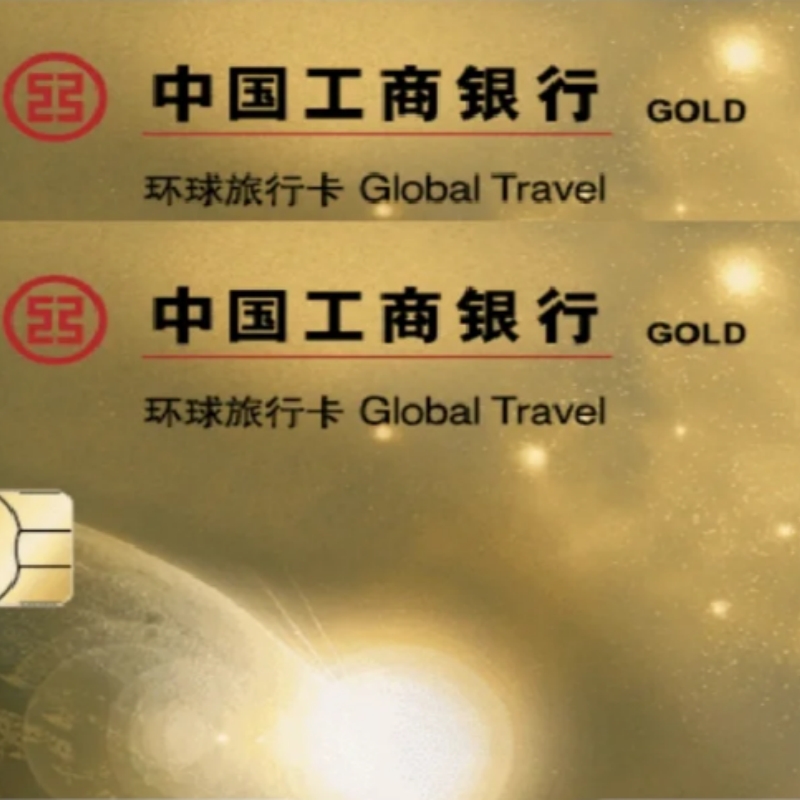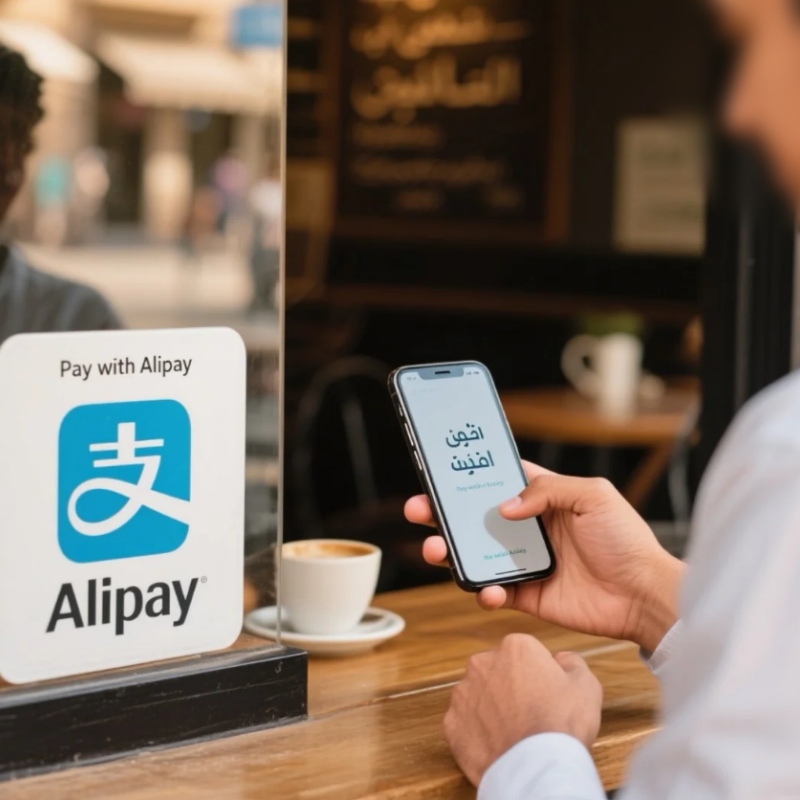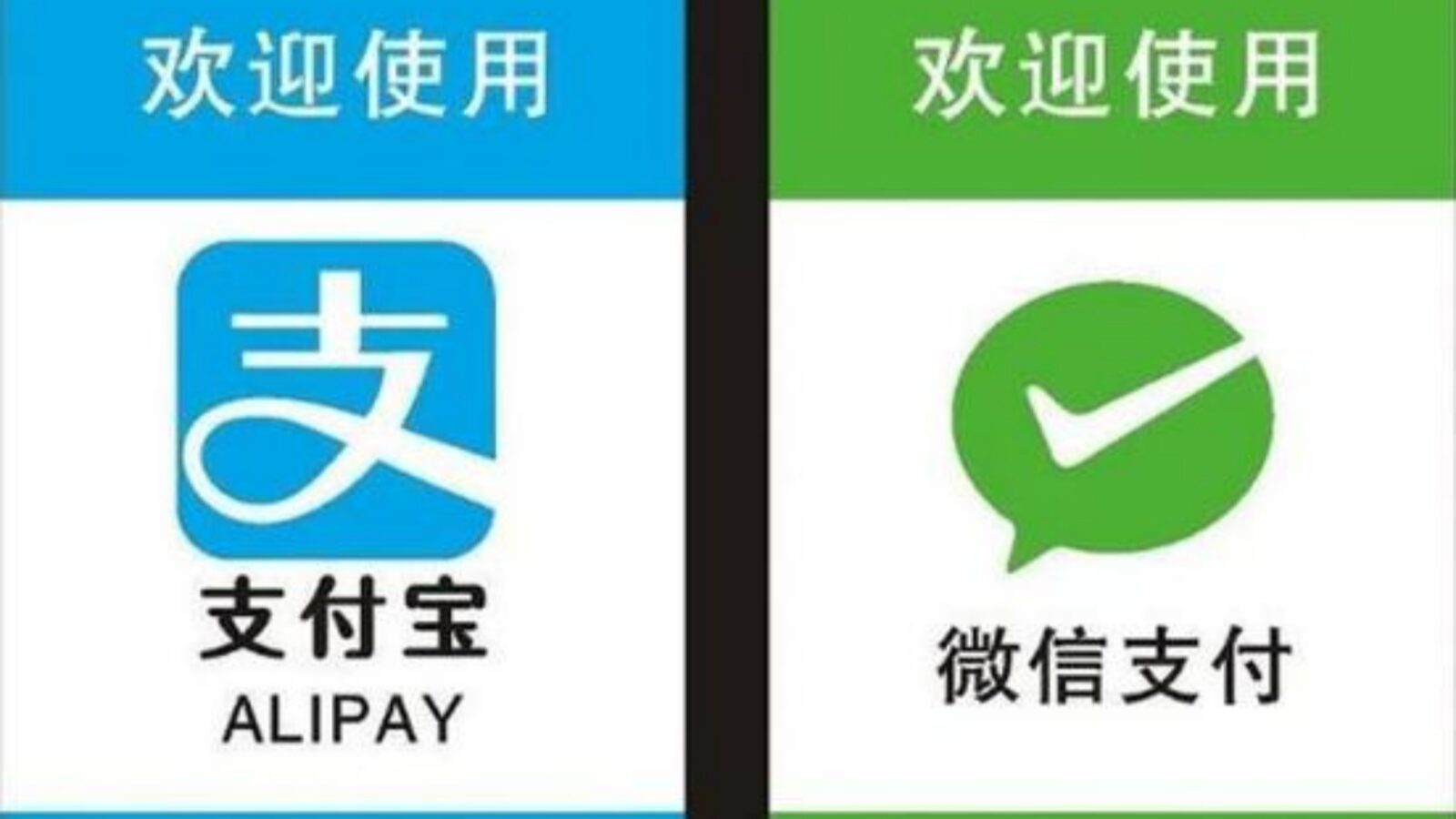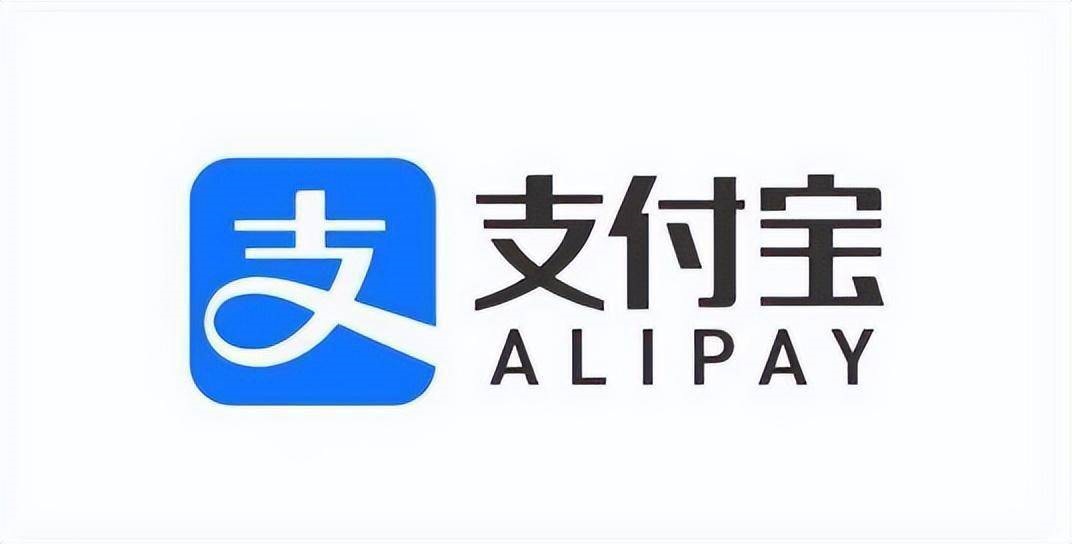Considering traveling to China? First things first: How do you pay once inside? It’s not just a matter of convenience, but also one of reducing fees and making your trip less stressful. The right credit card for China will vary depending on where you spend, what rewards are most important to you and how widely it’s accepted. The hotels, the airports and the malls tend to be card-friendly, but taxis and markets can require cash or a QR code. Make the best choice once and your trip will be even smoother from the first step. Read on to find out which is the best credit card for China, and why it’s important.
Can You Use Credit Cards in China
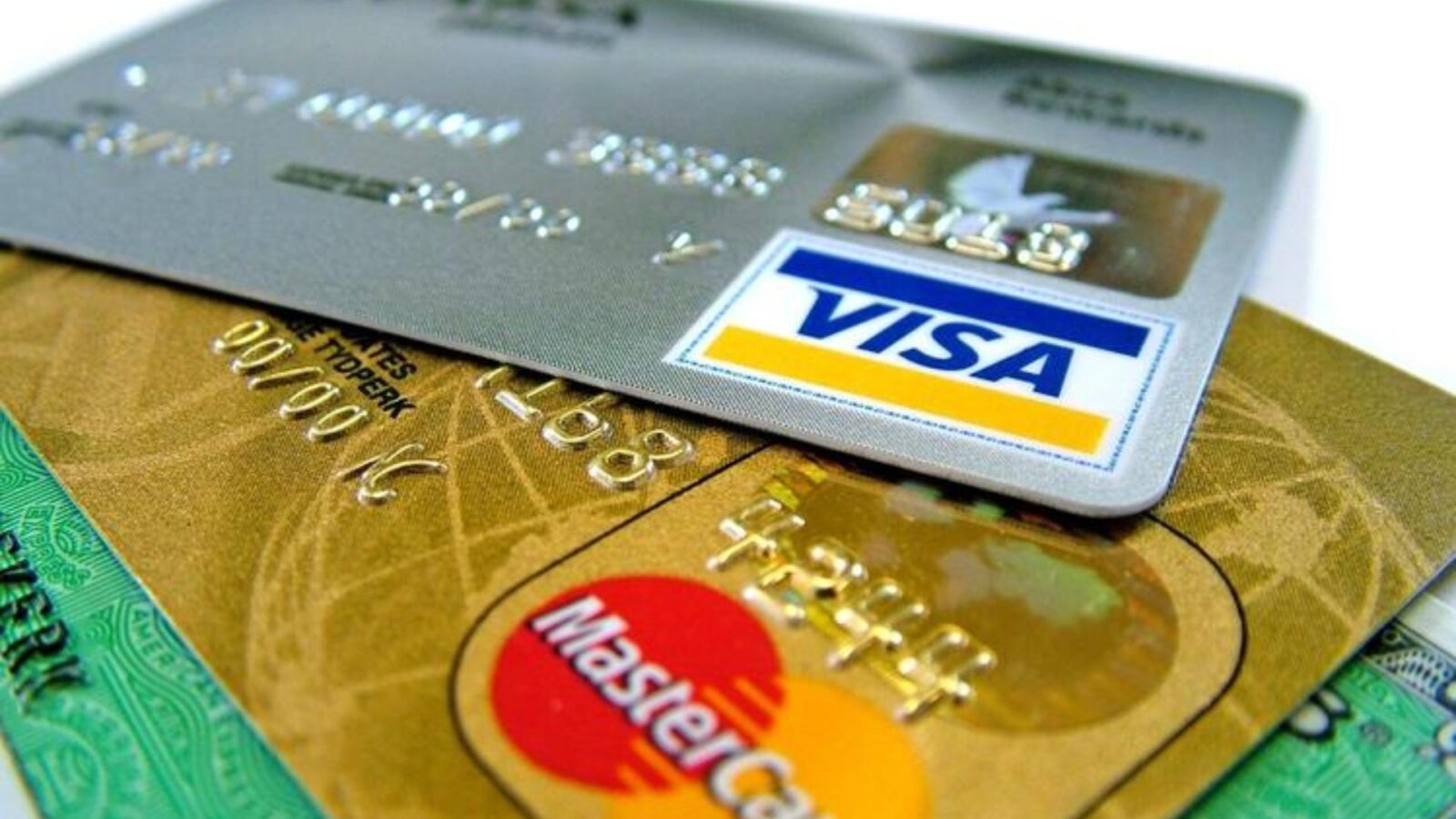
Credit Card
Limited Day-to-Day Use, But Still Possible
Credit cards are not how people pay in China, where even metro rides or a cup of coffee can be purchased with WeChat Pay or Alipay. In such small-scale environments, cards from abroad — like Visa or MasterCard — are often duds; travelers can’t count on them to make daily purchases. Yet credit cards serve as a nice safety net — should your phone battery still be charged, an app like Walmart Wallet fail or you just want to complete your purchase the old-fashioned way.
Meanwhile, China’s credit card system has expanded rapidly, particularly through UnionPay and partnerships with Visa and MasterCard. So there’s no need to carry one just as a last resort anymore, and many of the big retailers and service providers are more “seamless” with foreign transactions. For non-citizens, this means that while mobile payments rates will be much higher, use of credit cards still has some economic function. At most major cities, hotels, shopping centers and airports, English support is often available and card payment is easy and reliable.
Where Credit Cards Work Reliably
It’s a different story when it comes to international-facing situations, and here credit cards are significantly more important:
International Hotel Chains: In cities such as Beijing and Shanghai, most international hotels do accept Visa and MasterCard and can usually be relied upon to make accommodations payments.
High-end malls: Shopping in upscale centers like IFC or Plaza 66 is easy as they accept international cards and are good enough to satisfy one’s expensive taste and shopping brand.
Airports and duty-free shops: These are the safest bets, as they cater to international visitors who generally expect to be able pay by card.
3 Types of Travel Credit Cards with No Foreign Transaction Fees
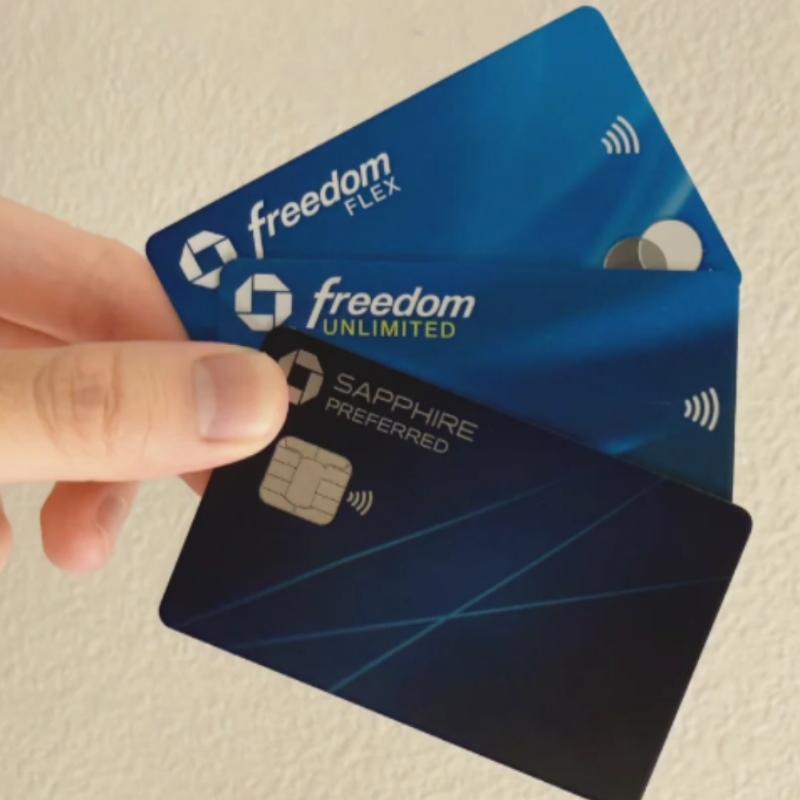
Chase Sapphire Preferred
Capital One Venture Card
The Capital One Venture card is known for its straightforward rewards system. Users earn miles easily on every purchase, and the lack of foreign transaction fees makes it convenient for overseas trips. In China, it works seamlessly at international franchises, airports, and larger retail stores. Its flat-rate earning structure appeals to travelers who want to keep things simple without tracking category bonuses, a trait that makes it the best credit card for China for stress-free rewards.
On the downside, acceptance in smaller Chinese merchants remains limited, and many rely on UnionPay or QR-based payments. Still, for booking flights, reserving hotels, or paying for international services, the Capital One Venture provides reliable access. Travelers who enjoy easy redemption options often recommend it as the best credit card for China if convenience matters most.
Bank of America Travel Rewards Card
The Bank of America Travel Rewards card is appealing for budget-conscious travelers. It provides unlimited points on purchases and is free from foreign transaction fees. In China, it is accepted in many higher-end hotels and shopping centers, allowing visitors to earn rewards while avoiding extra charges. This straightforward setup makes it the best credit card for China for travelers who dislike complicated programs.
Yet, travelers should be aware that the card’s acceptance in smaller markets and local transport is limited. The strength of this card lies in its simplicity—straightforward earning with no annual fee. For cost-sensitive travelers, this simplicity is why it is often listed as the best credit card for China when minimizing expenses.
Chase Sapphire Preferred Card
Chase Sapphire Preferred is one of the most reliable choices for international travelers. It eliminates foreign transaction fees and offers a generous points program that can be redeemed for flights, hotels, and dining. In China, it works smoothly at upscale hotels and international chains, making it a strong option for covering large purchases without extra costs. Travelers also appreciate its travel insurance coverage, which provides peace of mind during long trips. Many travelers even call it the best credit card for China when focusing on premium hotels.
However, while this card is highly rewarding, it has limited use in daily local settings. Street vendors, taxis, and smaller shops in China often rely on mobile payments, so the Chase Sapphire Preferred should be reserved for planned expenses such as accommodations and flights. Its perks shine most for frequent flyers who want to earn rewards and enjoy benefits like priority services, which is why some consider it the best credit card for China for big-ticket spending.
2 Types of Dual-Network Cards (UnionPay + International Brand)
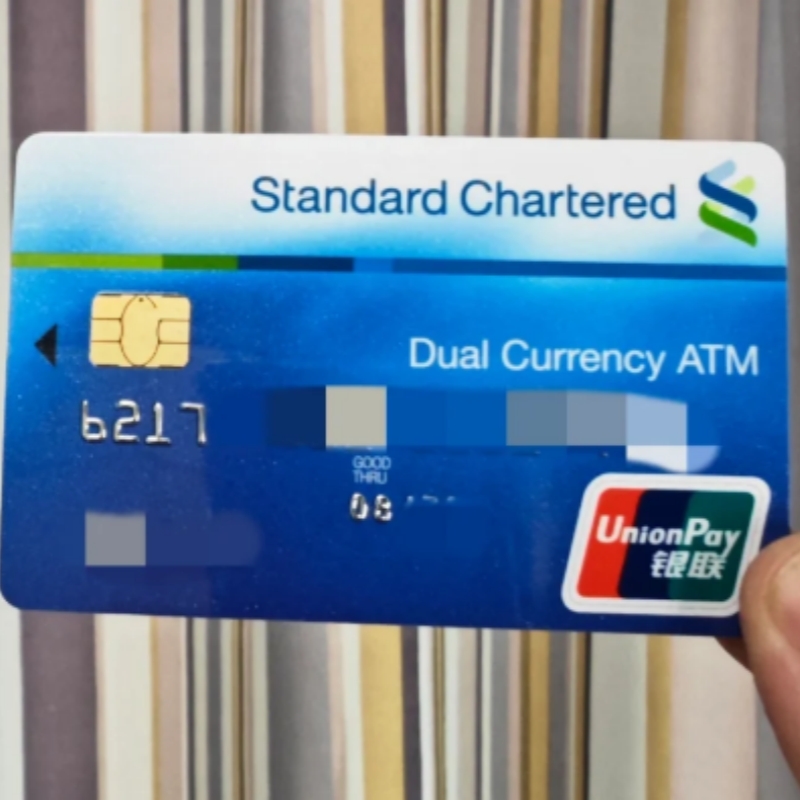
Standard Chartered UnionPay Dual Currency Card
Standard Chartered UnionPay Dual Currency Card
The Standard Chartered UnionPay Dual Currency Card offers the flexibility of paying in RMB domestically and foreign currencies abroad. This dual function means it works smoothly across supermarkets, hotels, and travel services in China. Rewards points add further value, making it appealing for travelers who plan to stay for longer periods. The wide coverage leads many to regard it as the best credit card for China for longer stays.
One of its strongest points is wide acceptance, thanks to UnionPay integration. At the same time, it still supports international payments via Visa or MasterCard. The only drawback is that such cards may not be as widely available from foreign banks, making access slightly challenging for travelers who prefer applying outside China. Still, its versatility makes it a top contender for the best credit card for China when balancing local and global use.
Bank of East Asia UnionPay Dual-Network Card
The Bank of East Asia Dual-Network Card combines UnionPay’s domestic reach with international brand support. In China, it ensures smooth transactions at everyday stores, large malls, and even ATMs. For global travelers, it works abroad while still providing perks such as travel insurance or bonus points, making it the best credit card for China for daily versatility.
For many users, the advantage is its high compatibility in China, which reduces the frustration of card refusal. However, when used abroad, transactions might default to UnionPay, which has lower acceptance compared to Visa or MasterCard. Even so, its integration makes it a practical choice and a candidate for the best credit card for China for those prioritizing broad usability.
3 Types of Co-Branded Cards with Chinese Banks
- Bank of China Great Wall International Credit Card
- ICBC Global Travel Credit Card
Bank of China Great Wall International Credit Card
The Bank of China Great Wall International Credit Card is a strong option for expatriates and frequent travelers. It supports both RMB and foreign currencies, providing versatility across domestic and international transactions. The card also offers tailored benefits such as discounts with select Chinese merchants and loyalty perks with airlines. This dual support positions it as one of the best credit card for China choices for expats.
Its major strength is broad acceptance through UnionPay integration, ensuring fewer issues when shopping or booking within China. However, applicants may face higher entry requirements, such as proof of income or premium banking relationships. Even with these hurdles, it’s often labeled the best credit card for China for those seeking local perks and stability.
ICBC Global Travel Credit Card
The ICBC Global Travel Credit Card is designed with international spending in mind. It provides travel insurance, reward points, and solid coverage across Chinese and global merchants. In China, it performs well at hotels, airlines, and larger retailers, making it ideal for big-ticket purchases. Its perks often qualify it as the best credit card for China for high-income frequent flyers.
The card’s perks extend to global travelers through partnerships with airlines and lifestyle programs. However, the entry threshold is high, often requiring strong credit and income levels. Still, for those who qualify, it stands out as the best credit card for China for premium users who value exclusivity and rewards.
China Construction Bank UnionPay Platinum Card
The China Construction Bank UnionPay Platinum Card emphasizes lifestyle perks along with strong acceptance in China. Benefits include concierge services, shopping discounts, and UnionPay network integration, which ensures smooth transactions across the country. It is a reliable choice for both shopping and dining at mid to upscale venues, positioning it as a strong candidate for the best credit card for China for lifestyle spending.
Applicants should be prepared for higher fees or account requirements to access this card. While not ideal for short-term stays, it offers ongoing value for expatriates or long-term visitors who want deeper integration with local services. This blend of perks and usability is why many consider it among the best credit card for China for residency.
Quick Comparison Table
| Rank | Card Name | Best For |
|---|---|---|
| 1 | Capital One Venture Card | Short-term travelers booking hotels & flights |
| 2 | Chase Sapphire Preferred Card | Frequent flyers wanting rewards and travel protections |
| 3 | Bank of America Travel Rewards Card | Budget-conscious travelers seeking no annual fee options |
| 4 | Standard Chartered UnionPay Dual Currency | Long-term travelers needing wide acceptance |
| 5 | Bank of East Asia UnionPay Dual-Network | Daily versatility across China and abroad |
| 6 | China Construction Bank UnionPay Platinum | Expats seeking lifestyle perks and concierge services |
| 7 | Bank of China Great Wall International | Expats wanting broad acceptance and loyalty rewards |
| 8 | ICBC Global Travel Credit Card | High-income travelers seeking premium perks |
Use a Credit Card in Shanghai
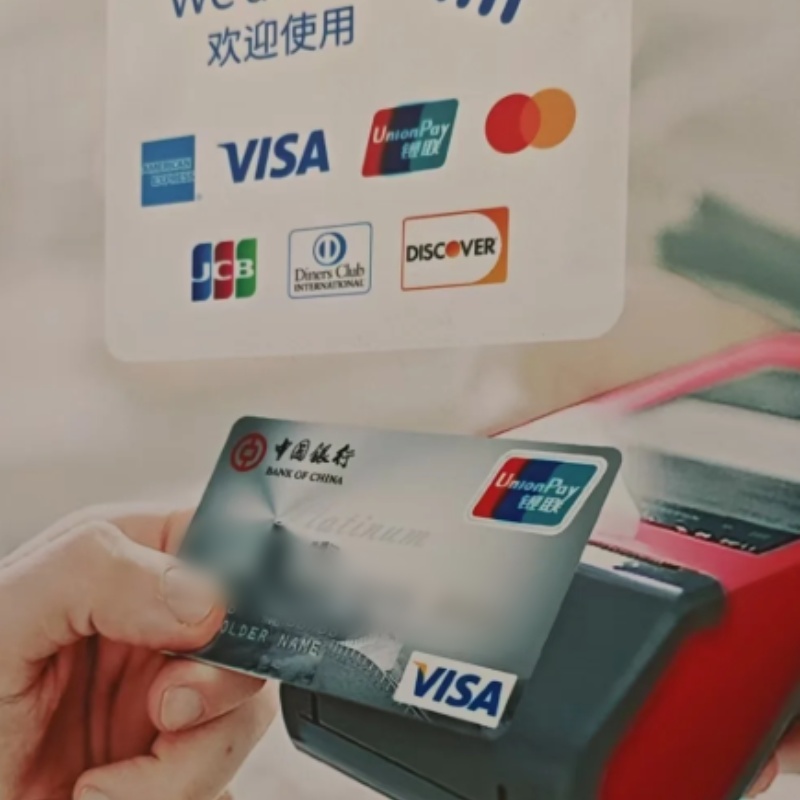
Signal
Look for Card-Friendly Signs
First, look for Visa, MasterCard or UnionPay signs at the front door of the store or near the cash register. These signs can be found in international hotels like the Ritz-Carlton or Marriott, luxury malls like IFC and Plaza 66 and airport duty-free shops. If you see them, it’s okay to proceed confident your card will be accepted.
Example: At the entrance to Plaza 66, you may notice a board posted listing “UnionPay • Visa • MasterCard.” That’s your clear signal.
Make the Payment
Go to the cashier and swipe your card with pride.
Dialogue Example:
Traveler: “Can I use my Visa?”
Cashier: “Yes, go ahead and stick it right on in there.”
Insert or swipe when prompted to do so. The terminal will inquire, “RMB or USD?” Always choose the RMB option for a more honest exchange rate. You might be prompted to enter a PIN or sign, depending on your bank. The transaction is done when you hear the approval beep.
Confirm and Keep Proof
Before you walk away, actually read your receipt. See total and make sure it's in RMB. And just ask if you are not certain: Hotel and mall employees often know some English. Guard the receipt well (preferably in your wallet or passport holder), for it may be indispensable to you in case of future quarrels.
If you follow these steps — seek logo, pay, get receipts — you can use credit cards easily in Shanghai. Credit cards are still a steady choice overseas, as Alipay and WeChat Pay continue to reign domestically.
Need quick tips for paying like a local on your trip? Visit How Do Foreigners Pay in China: Your Cashless Survival Guide 2025
Alternatives to Credit Cards for China
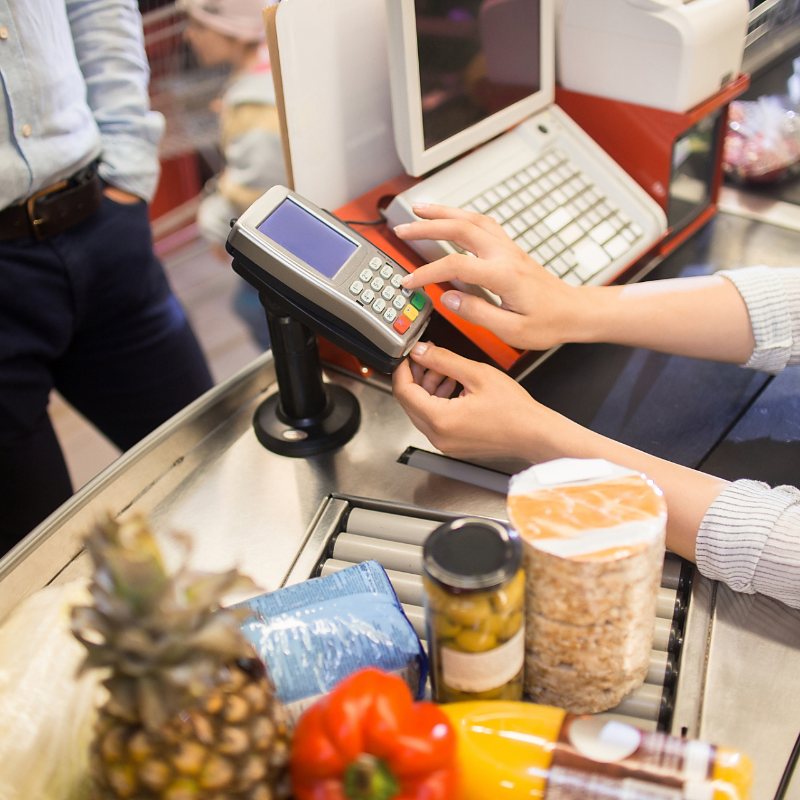
Payment
How to Use Cash Safely and Wisely in Chinese Cities
Cash isn’t disappearing, but it’s less and less common. I normally have 500 to 1,000 RMB in my wallet that I carry for emergencies. It comes in handy when purchasing street snacks in Xi’an or paying for souvenirs in smaller towns. ATMs in branches of the BoC or ICBC may be compatible with foreign cards. Once in Guilin I withdrew money with no problem so having bills was comforting.
Keep personal memos for daily use. Big bills may be problematic, especially in crowded night markets. I tried to pay with a 100 RMB note at a food stall once, for example, and you would’ve thought I dropped trou by the grimace that descended on the beef noodle woman’s face before she fished out an extra blade of change. Having less cash on you to spare the hassle and awkwardness (and possibly wasted time) makes it easier for both of you, as well as making you look less like a newbie. Cash will not address everything, but it does fill crucial gaps.
Alipay and WeChat Pay With Foreign Cards (2025 Update)
Alipay and WeChat also now connect to foreign cards. In 2025 the process is way slicker, although patience is still required. I opened Alipay with my passport and a foreign Visa card in Shanghai.” The app prompted me for a phone number, and within 10 minutes it was configured. Watching locals fly through in seconds made me want to test it too.
Once you link it, you can use it almost anywhere. I took the subway, got milk tea and even purchased a train ticket. Then, scanning began to feel natural. One piece of advice: keep your phone charged. Nothing is as demoralizing as standing at a gate with a dead battery while locals sail through with just a scan.
Mixing and Matching Credit Cards, Cash and Apps for a Smooth Trip
There is no one way to pay for everything. I came to this myself after being unable to pay a driver with my card in Chengdu. Now, I mix methods. I take taxis with Alipay, pay for hotels with credit cards and use cash on rural buses. This is the type of balance that just provides less friction and stress in travelling.
You can think of payments like packing for a trip. You pack layers for weather shifts, and you take along differing payment tools for travel expenses. Credit cards provide security, apps offer speed, cash brings flexibility. Mixing them ensures you’re prepared for the unexpected — whether shopping in Shanghai or visiting mountain villages.
Practical Tips about Credit Card for China
Offline Payments
UnionPay is well supported at bigger merchants like hotels, shopping malls and airports, many of which also accept Visa or Mastercard. Make sure to ask the cashier when you pass over your card. Some high-end hotels place a pre-authorization deposit on your account, meaning a portion of your credit limit is set aside until checkout. Make sure you have enough credit on your card Limit and find out how long the pre-authorization will hold, typically 1-7 business days. For smaller merchants, it’s UnionPay cards only — if not mobile payments only. Cabbage Keep a little RMB on hand for taxis, street snacks and markets.
Online Payments
For instance, the domestic one such as Taobao, JD or Meituan mostly utilize Alipay or WeChat Pay due to its dependency on Chinese bank card. You can almost never use foreign cards on these platforms. However, there are exceptions such as international brand sites like Apple China or hotel booking services like CTrip and Booking. com, which might take Visa or Mastercard. Always look at payment options before making a purchase. Have a full card details ready for online flight and hotel bookings (and make sure your bank allows transactions from China).
Curious how tourists pay with Alipay just using foreign cards? Visit Alipay for Foreigners: A No-Chinese-Bank-Card Payment Guide (2025)
Cash Withdrawals and Fees
The most convenient way to get Renminbi is an UnionPay ATM, which are almost in every bank. Find the UnionPay logo, insert your card and choose “withdrawal.” Fees typically consist of 2 parts: fees charged by from your card-issuing bank (this is usually 1–3% of the amount, with a minimum) and from the local ATM bank you’re withdrawing money from (some waive it, some charge several RMB). Keep in mind, cash advances on credit cards have interest that begins accruing right away and can range from around 0.05% per day. The foreign credit card withdrawal limit in china is 10,000 RMB per day as per regulations, but your bank may impose a lower daily limit.
Security and Risk Control
Inform your bank prior to going to China that you will be traveling there, as this can ensure that transactions and blocked cards are not flagged for suspicious activity. Always keep your card in view when paying to prevent copying risks, and shield the keypad as you enter your PIN. For online payments, do not use other apps and only use sites with HTTPS protection, and never share your CVV code with anyone. Save receipts along with order confirmations, and monitor your statements regularly. If an item appears suspicious, get in touch with your bank right away to freeze the card and seek help disputing the charge.
FAQs about Using Credit Cards in China
Q: What should I do if my card is declined at checkout?
If your card is declined, try another terminal or ask if UnionPay is required. If it still fails, switch to cash immediately and complete the payment. Contact your bank using the international number on your card to unlock restrictions. Explaining your location often helps, and keeping cash ready prevents stress.
Q: How can I avoid poor exchange rates when paying?
Always choose RMB when the machine asks for a currency option. Foreign currency conversion usually adds hidden fees and worse rates. Check receipts to confirm the charge is billed in RMB, not USD or EUR. This habit saves money, and comparing with your statement later helps spot issues.
Q: Which ATMs are best for withdrawing money?
Use ATMs from large banks like ICBC, Bank of China, or CCB. Their machines usually accept Visa or Mastercard without issues. Avoid smaller town ATMs, since they often reject foreign cards or run out of cash. Withdraw enough at once to reduce repeated fees and always look for the UnionPay logo.
Q: How do I prepare my card before arriving in China?
Call your bank one or two days before travel to notify them. Inform them of your trip dates, destinations, and expected spending range. Enable international payments and confirm your PIN works abroad. Ask about withdrawal limits and fees to avoid surprises later.
Q: What backup should I carry if cards fail?
Carry 500–1,000 RMB in small bills for daily use and safety. Taxis, markets, and small shops often refuse foreign cards or only take cash. Keep cash separate from your main wallet to reduce theft risks. Splitting money across bags ensures you always have some funds.
Q: Do hotels in China require a credit card deposit?
Most international hotels request a pre-authorization deposit at check-in. The hold usually equals the room rate plus extras like meals. Ask how long the hold takes to release, often within 1–7 days. Ensure your card limit covers this blocked amount without issues.
Q: Can I use credit cards for transportation in China?
Some metro machines in Beijing and Shanghai accept Visa, Mastercard, or UnionPay. Buses and local transit usually need Alipay, WeChat Pay, or transit cards. Taxis may take UnionPay but rarely accept Visa or Mastercard. Always carry RMB cash for rides where cards are not accepted.
Q: How do I protect my card information while traveling?
Keep your card in sight when paying and cover the keypad. Use only official apps and secure HTTPS websites when paying online. Save receipts or screenshots to track spending and confirm charges later. Check your account often and report suspicious activity quickly.
